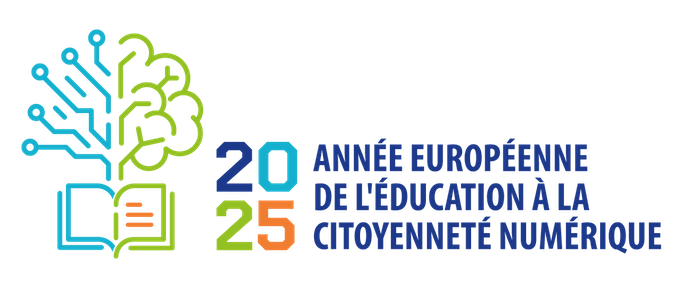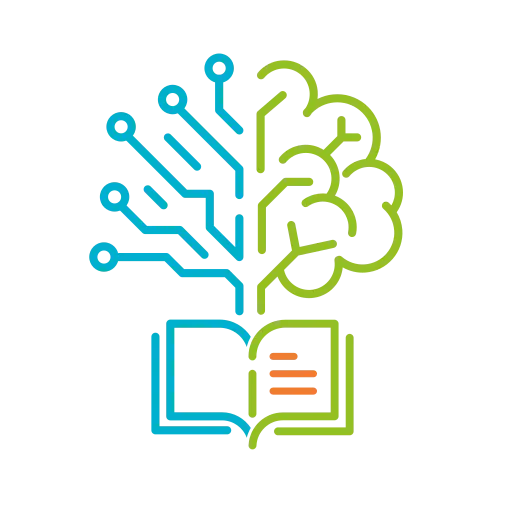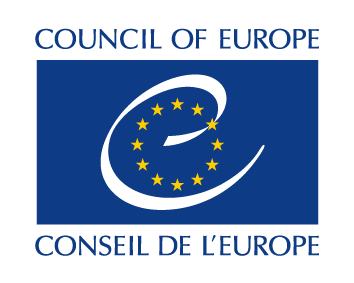- National Cybersecurity Strategy for 2021-2024.The strategy focuses on enhancing cybersecurity culture and capabilities, improving public-private cooperation, and fostering international collaboration. It aims to develop skills and awareness among students and organisations, establish effective cyber incident response systems, and promote research and technical advancements in cybersecurity.
- Unified National Strategy of Education and Science of Georgia 2022-2030. One of the priority areas will be the promotion of lifelong competencies such as literacy, multilingualism, quantitative literacy, financial literacy, scientific and engineering skills, digital and technology-based competencies, interpersonal skills and active citizenship, entrepreneurship, and intercultural sensitivity. The document refers to other Council of Europe principles and recommendation. For instance, « Georgia’s educational system, theoretically and practically, considers the principles of the 2010 Council of Europe Charter on Education for Democratic Citizenship and Human Rights ».
- Although the DCE Recommendation is not yet explicitly integrated in the policy documents, there are several guidance documents, conceptually referring to the DCE recommendation, such as the National Curriculum, especially for the new subject Media Literacy, which has been adopted in 2023 as an elective subject (under the collaboration between the Ministry of Education, Science and Youth, Communication Committee and UNICEF Georgia). Subject standard and manual have been developed and Media Literacy (as an independent subject) is taught in 227 schools.
Country profile list

Georgia
1. National Cybersecurity Strategy for 2021-2024. The government plans to Introduce classes on Digital Citizenship at all three levels of general education, cybersecurity training courses in higher education institutions and creating a guide on security in cyberspace for children and adolescents
2. Unified National Strategy of Education and Science of Georgia 2022-2030: Digital Citizenship related competences are mentioned in the Strategy and National Curriculum as well.
3. Other awareness activities and initiatives:
a) The Internet Society of Georgia hosts the « Digital Literacy School » competition, focusing on personal data protection, digital literacy, misinformation, and internet governance. This initiative includes both theoretical and practical sessions aimed at high school students to enhance their digital skills and awareness.
b) Rural Empowerment through Digital Inclusion (REDI) focuses on enhancing digital citizenship education in rural areas. Their activities include workshops, training sessions, and community outreach programs aimed at educating residents on digital literacy, online safety, and responsible internet usage.
c) The Media Literacy Hub aims at promoting responsible online behaviour, enhancing digital skills, and fostering awareness of digital rights among various groups in Georgia.
d) Kutaisi International University (KIU) integrates digital citizenship education into its curriculum through various programs and courses. The university offers training in digital skills, including a Certified Ethical Hacker Course that aims to enhance students’ understanding of cybersecurity and ethical online behaviour. KIU collaborates with international partners to ensure that their programs are up-to-date and relevant in the digital age.
e) National Centre for Teacher Professional Development is implementing DCE: organising seminars, conferences, creating/developing resources and training modules (ex. “Prevention of Cyber Bulling” – 2 899 teachers are trained; “Disinformation as a challenge” – teachers from 319 schools are trained; “Cyber Hygiene”; “Media Literacy” – 2 530 teachers are trained).
f) USAID Civic Education Program (covering 600 schools of Georgia) is implementing DCE by organising several activities for students, teachers, school principals.
g) DCE related topics/subjects are part of teacher preparation in-service and pre-service programs in several universities, mostly as an independent subject on Media and Information Literacy (ex. Ilia State University, Tbilisi State University, Business and Technology University, Caucasus University, etc).
Sources
- National Cybersecurity Strategy for 2021-2024. There are plans to create one progress report and annual report assessing the implementation of the strategy.
- Unified National Strategy of Education and Science of Georgia 2022-2030. There are plans to evaluate the activities through a 6-month progress report and annual reports.
- According to the national authorities responding to the online survey, several studies have been developed, evaluating specific DCE topics (ex. Scientific study about challenges and implementation avenues on DCE in Georgian Schools).
Sources
- National Cybersecurity Strategy for 2021-2024. The stakeholders involved in the design of this strategy include representatives from academia, non-governmental organizations, and businesses.
- Unified National Strategy of Education and Science of Georgia 2022-2030. The stakeholders involved in developing this strategy include: the Parliament, Central and local authorities, Business sector and trade unions, Academic community, International and local donor organizations, Non-governmental and civil society organizations, Persons involved in teaching and learning processes, Educational institutions.
Sources
- National Cybersecurity Strategy for 2021-2024. The strategy will be implemented by Office of the National Security Council, Ministry of Education and Science, Digital Governance Agency, Civil Service Bureau, State Security Service, ICT Business Council, Ministry of Internal Affairs, National Communications Commission.
- Unified National Strategy of Education and Science of Georgia 2022-2030: The implementation of the strategy will be coordinated by The Ministry of Education.
Sources
- National Cybersecurity Strategy for 2021-2024: No information was found
- Unified National Strategy of Education and Science of Georgia 2022-2030: No information was found
Sources
No information found
- Georgian Innovation and Technology Agency (GITA). GITA, established by the government, plays a crucial role in promoting digital citizenship education. GITA runs various programs and initiatives to foster innovation and digital skills, including digital literacy training, tech hubs, and incubation centres. These activities aim to equip citizens with the necessary digital competencies and promote responsible digital behaviour. GITA collaborates with several leading international organizations and accelerators to design and implement its activities. Key partners include Startupbootcamp/Rainmaking, Plug and Play, UPTEC, Baltic Innovation Agency, USMAC, 2080 Ventures, Startup Wise Guys, 500 Global in Eurasia, and German Accelerator. These partnerships help GITA provide comprehensive support to startups, enhance digital literacy training, and foster innovation through tech hubs and incubation centres.
- Tbilisi Tech Park, an initiative by the Georgian government, is designed to support innovation and digital education. The park offers a range of programs, workshops, and events focused on enhancing digital skills and promoting digital citizenship. It serves as a hub for startups, educators, and students to collaborate and learn about the latest digital technologies and practices. Tbilisi Tech Park, as part of GITA, shares many of its collaborators and partners, which include prominent international accelerators and agencies such as Startupbootcamp/Rainmaking, Plug and Play, and others. These partnerships enable Tbilisi Tech Park to offer diverse programs, workshops, and events that focus on digital skills enhancement and innovation, supporting startups, educators, and students in learning about and utilizing the latest digital technologies.
- Batumi Shota Rustaveli State University (BSU), supported by the Georgian government, has established several centres and initiatives dedicated to digital education. These include programs in Human-Computer Interaction and partnerships with international institutions for innovation and technology transfer. The university offers workshops, seminars, and collaborative projects aimed at improving digital literacy and promoting responsible digital citizenship among students.
- Cooperation between TBC Bank and USAID Civic Education Program (which is operation in coordination with MoESY).
- Collaboration between MoESY, Comcom and UNICEF to establish Media Literacy as an independent subject.
Sources
- https://gita.gov.ge/
- https://www.facebook.com/GITA.gov.ge/
- Online survey with national authorities
- Online survey with national authorities
No information found
- Council of Europe held a conference on Artificial Intelligence in Georgia.
- Member of the DCE Promoters Network
- European Commission’s eTwinning program, being implemented by the National Center for Teacher Professional Development (TPDC), one of the agencies of MoESY, is actively implementing GCE related topics in Georgian schools.
- Cooperation between MoESY and UNICEF to include Media Literacy in the National Curriculum as an independent subject.
- Member of Commission Working group on Schools
Sources
- https://www.coe.int/en/web/digital-citizenship-education/-/artificial-intelligence-in-education-conference-in-georgia
- https://www.coe.int/en/web/digital-citizenship-education/promoters#{%22245884893%22:[7]}
- Online survey with national authorities
- Online survey with national authorities
Training on DCE to teachers and other professionals:
According to the national authorities responding to the online survey:
- DCE related topics/subjects are part of teacher preparation in-service and pre-service programs in several agencies (trainings, seminars, conferences) and universities (mostly as an independent subject on Media and Information Literacy. ex. Ilia State University, Tbilisi State University, Business and Technology University, Caucasus University, etc).
- The National Centre for Teacher Professional Development (TPDC) is actively implementing DCE related topics with teachers and school principals: organising seminars, conferences, creating/developing resources and training modules (ex. “Prevention of Cyber Bulling” – 2 899 teachers are trained; “Disinformation as a challenge” – teachers from 319 schools are trained; “Cyber Hygiene” training series; “Media Literacy” – 2 530 teachers are trained).
- In coordination with the MoESY, USAID Civic Education Program (covering 600 schools of Georgia) is implementing DCE by organising several activities for students, teachers, school principals.
- TPDC published several resources on DCE and its related topics:
- Parents guidelines in the digital world: https://educationhouse.ge/open_news/797
- Cyber awareness terms dictionary – https://educationhouse.ge/open_news/168
- DCE in schools – https://educationhouse.ge/open_news/1138
Media Literacy lessons – https://mediatsigniereba.ge/teachers/sakhelmdzghvanelo-mediatsignierebis-gakvetilebi
Translation and dissemination of DCE Recommendation:
The National Center for Teacher Professional Development (TPDC) translated DCE Recommendation into Georgian and published in online format in September 2024 (https://educationhouse.ge/open_news/2727). The publication will be printed by the end of 2024. It will be disseminated among schools and several stakeholders, specific dedicated events/activities will be organised accordingly.
Nous contacter
Service de l’Éducation
Conseil de l’Europe
Agora Building
1, Quai Jacoutot
67075 Strasbourg Cedex
France


